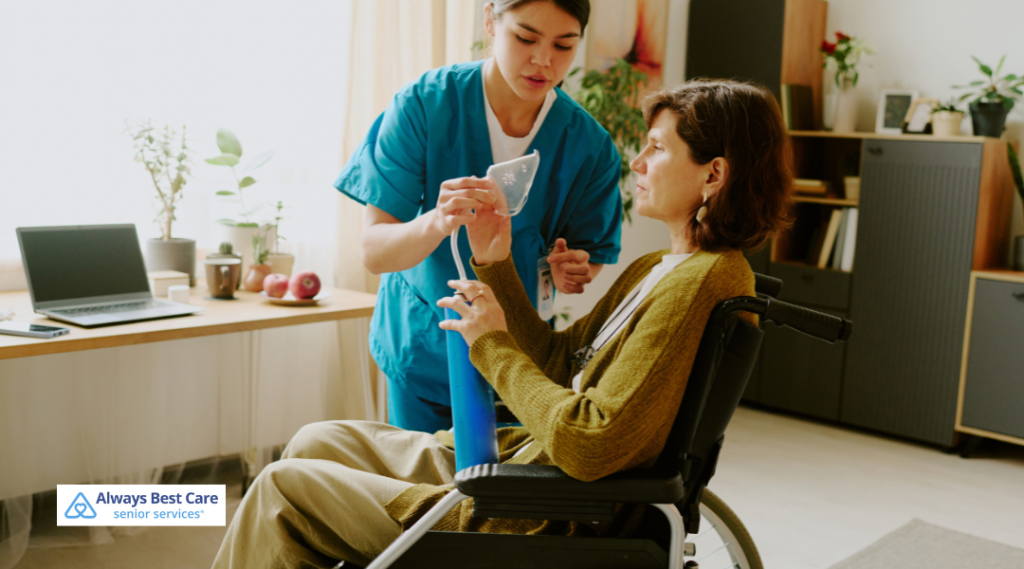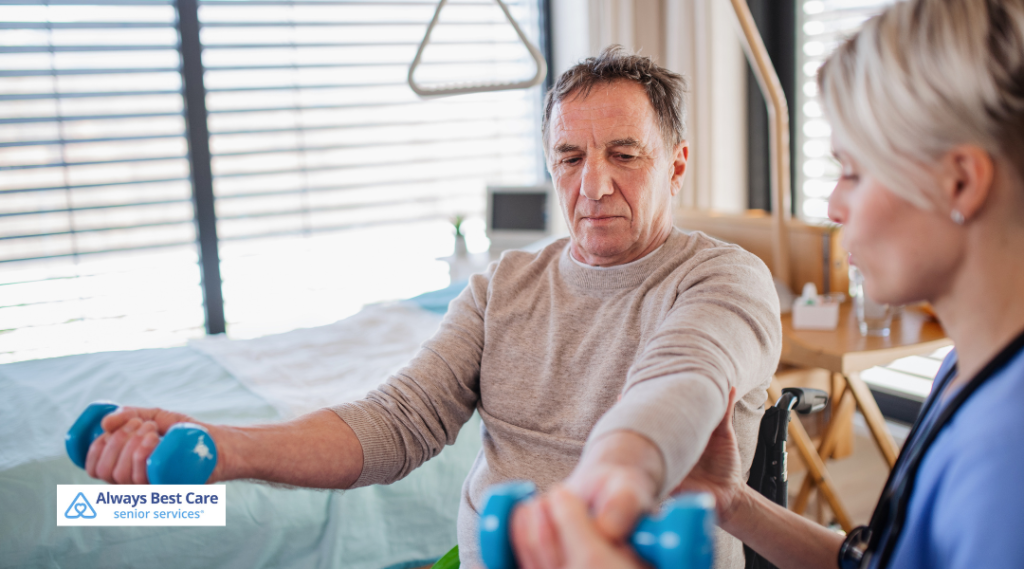The Hospital Discharge Process: How to Prepare for Your Senior Parent’s Return Home

After a hospitalization, the journey doesn’t end when you leave the hospital doors. For seniors, the transition from hospital to home can be a turning point in their recovery. But, here’s the kicker—returning home doesn’t mean everything is suddenly back to normal. Many seniors require additional help to ensure a smooth recovery, and that’s where hospital-to-home services come in.
These services aren’t just about having someone around to help—they’re designed to provide the personalized care and attention needed for a full recovery in the comfort of home.
But, you may wonder, when are these services necessary? How do they support seniors during recovery? And how can they help seniors regain their independence? In this article, we’ll walk you through everything you need to know about hospital-to-home services, from what they entail to when they’re needed, and how they can truly make a difference in the recovery process.
Table of Contents
The Journey from Hospital to Home
When a loved one is discharged from the hospital, the relief is often mixed with a sense of responsibility and sometimes anxiety. The hospital-to-home transition is a big step, and ensuring that your home is ready for this change is crucial to your loved one’s recovery. But don’t worry—this guide breaks down exactly what you need to do to make the transition as smooth as possible. From preparing the home environment to organizing medications and ensuring you have the right support, we’ve got you covered every step of the way.

1. Preparing the Home Environment for Recovery
The first step in preparing for a hospital-to-home transition is ensuring that your home is safe and ready. You’ll want to make sure that your loved one has everything they need to recover comfortably. Here’s how to start:
- Clear Pathways: Move furniture or obstacles that could cause trips or falls. Ensure there’s ample space for walkers, wheelchairs, or any other mobility aids they may need.
- Install Safety Features: Add grab bars in the bathroom, non-slip mats, and ensure there’s a sturdy handrail on stairs, if applicable.
- Prepare a Restful Area: Set up a comfortable space for your loved one to rest. This might include rearranging furniture, adding extra pillows or blankets, and making sure essential items are within reach.
- Organize a Care Station: Keep everything your loved one needs in one place, such as medications, medical equipment, and personal items like glasses, hearing aids, or remote controls.
2. Managing Medications and Medical Equipment
One of the most important parts of a hospital-to-home transition is ensuring that medications and medical equipment are in place and properly managed. Medication errors or missed doses can lead to complications, so it’s vital to stay organized. Here’s how:
- Create a Medication Schedule: Use a pill organizer or set up reminders on your phone to ensure medications are taken on time. Double-check the discharge instructions for specific dosage and timing details.
- Secure Medical Equipment: If your loved one needs medical equipment, like oxygen, a hospital bed, or mobility aids, make sure everything is set up and functioning correctly before discharge.
- Check for Refills: Be sure to refill prescriptions ahead of time so you’re not scrambling at the last minute. Keep a list of pharmacy contacts in case you need to make quick changes.
- Monitor Vital Signs: If needed, have a thermometer, blood pressure monitor, or pulse oximeter ready to keep track of vital signs. If instructed by a healthcare provider, learn how to use these devices to stay on top of their recovery.

3. Organizing Support and Care Services
Once your loved one is home, they might need more than just family support—they may require professional help to manage their recovery. Whether it’s for medical care, personal assistance, or emotional support, organizing the right care team is crucial.
- In-Home Care: If your loved one needs help with personal care tasks (like bathing, dressing, or mobility), consider hiring a caregiver or arranging for visiting nurse services. A caregiver can also assist with medication management and light housekeeping.
- Physical or Occupational Therapy: If prescribed, coordinate therapy sessions to help your loved one regain strength and mobility. These can often be done at home for maximum comfort.
- Emotional Support: Don’t underestimate the power of emotional support. Having family or a trusted friend nearby can make a huge difference in how your loved one feels about their recovery. Encouraging social interactions or offering companionship can aid mental health just as much as physical recovery.
4. Setting Up a Follow-Up Plan with Healthcare Providers
Ensuring that your loved one stays on track after their discharge involves clear communication with healthcare providers. Follow-up appointments are a vital part of recovery, and staying organized will help you manage them.
- Make Follow-Up Appointments: Schedule appointments with the doctors, specialists, or therapists as soon as you can. Keep a calendar or reminder system to stay on top of them.
- Prepare for Telehealth Visits: Some follow-up appointments may be virtual. Ensure your loved one has the necessary technology (like a smartphone or computer) and understands how telehealth visits work.
- Keep Track of Symptoms: If your loved one develops new symptoms or side effects, write them down and bring them up during follow-up visits. This helps healthcare providers make informed decisions about care.

5. Adjusting the Home Routine for Recovery
After the excitement of bringing your loved one home settles down, it’s time to establish a recovery routine. Keeping a structured routine helps with emotional well-being and recovery.
- Set Regular Sleep and Meal Times: Consistent rest and meals are essential for recovery. Create a predictable schedule for your loved one that includes breaks, exercise, and rest.
- Encourage Light Activity: If permitted by a doctor, small exercises or walks can help boost recovery. Make sure these activities align with their healthcare plan.
- Monitor Emotional Well-Being: Recovery can be emotionally challenging. Make sure your loved one has access to activities or hobbies that can help them stay positive, and be there for them when they need to talk.

FAQs: Hospital to Home Transition
1. How soon can I bring my loved one home after discharge?
As soon as your loved one is medically stable and has a discharge plan in place, they can go home. This might include having a caregiver or medical support system ready to ensure a smooth transition.
2. Do I need to hire a caregiver immediately after hospital discharge?
It depends on your loved one’s condition. If they need help with daily activities or managing medications, hiring a caregiver can be extremely beneficial. For less intensive cases, family members can often step in, but be sure to assess the situation carefully.
3. How can I ensure my loved one’s medications are managed correctly?
Create a medication schedule, use pill organizers, and set up reminders. Double-check the discharge instructions and communicate with the pharmacy if anything is unclear. This will help prevent missed doses or errors.
A Smooth Transition with Careful Preparation
The hospital-to-home transition is an important step, and with the right planning, it can be a smooth one. By preparing the home environment, organizing medications and medical equipment, and ensuring you have the right support, you can make sure your loved one’s recovery is as safe, comfortable, and stress-free as possible. Take the time to follow these steps, and your loved one will be on the path to recovery in no time.
Ready to prepare for the hospital-to-home transition? Start planning today to ensure the best recovery experience for your loved one.
Contact Always Best Care of Birmingham at (659) 200-5714 to learn more and schedule your free consultation.





